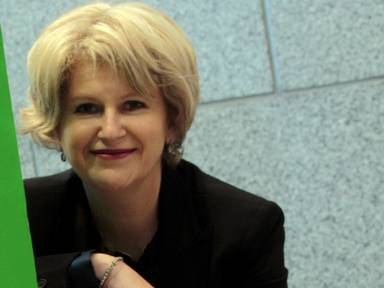Women Directors Want Greater Transparency in Appointment Process

Women directors want greater transparency in appointment process – IoD survey
Pictured: Maura Quinn, chief executive, Institute of Directors in Ireland
Gender diversity on boards in Ireland is improving, but greater transparency in the appointment process is needed to increase the number of women directors, according to a new research report from the Institute of Directors in Ireland.
The Women on boards in Ireland: Progress made, but obstacles remain, which has been released today, is based on interviews with 155 of the Institute of Directors in Ireland women members who currently hold an executive or non-executive directorship.
In the research, 58pc of women said gender diversity on the board on which they sit has improved in the last five years. Over a third (37pc) said gender diversity is either a medium or high priority for their board. Sixty-eight percent of women surveyed have undertaken formal director training. And 94pc of women surveyed said they feel equal in the boardroom.
The majority (55pc) of women said they do not believe their gender has ever been a factor in being appointed, or not being elected, to a board and are confident that their skills and experience were the key factors in their appointment.
However, 70pc believe is harder for women to become non-executive directors than men. And 55pc said women do not have equal access to information about available directorship positions.
Some 72pc said greater transparency in the appointment process is needed to enable more women to be appointed as directors in Ireland. Four out of five respondents (81pc) said women themselves need to take some responsibility for the low level of women on boards in Ireland.
When asked whether they believe there is a ‘glass-ceiling’ preventing women being appointed to boards in Ireland, 35pc agreed that a glass ceiling does exist while 34pc said there is either no glass ceiling or that it existed in the past, but not any longer.
A further 18pc of those surveyed believe a glass ceiling exists, but only in certain sectors or industry types, citing financial services and publicly listed companies as examples.
The women were also asked for their views on gender quotas versus targets as a means of increasing the number of women on all boards in Ireland. The largest proportion of respondents (43pc) said gender targets rather than mandatory quotas are preferable. Some 29pc think quotas are the most effective means of increasing the number of women on boards, 25pc said quotas are the wrong approach, and that board appointments should be based on merit, not gender.
Seventy percent of women surveyed support EU legislative proposals to introduce a 40pc target for the under-represented sex on boards of Europe’s listed companies by 2020.
“The really positive finding from this research is that women believe that gender diversity on boards in Ireland is improving and that progress is being made,” said Maura Quinn, chief executive, Institute of Directors in Ireland. “This is very encouraging.
“There are clearly still issues about transparency and a ‘who you know’ approach to board appointments that need to be addressed, however, the women surveyed are also keen to see women themselves take a more proactive approach.
“What we now need to focus on is addressing the issues in the appointment process by working to ensure that women are on an equal footing with men from the outset and we have to make sure that boards are encouraged to look at a wider talent pool when making appointments.”